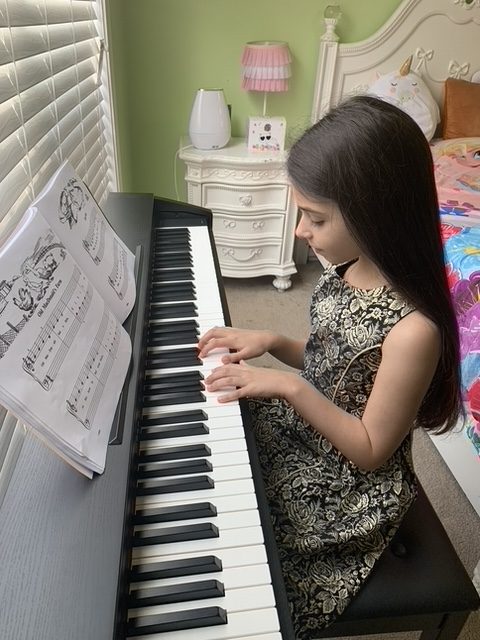
Developing Your Skill
Every student, and really, just about everyone, would love to play the piano well. Not many children or adults enjoy practicing. However, if a student does not practice regularly, there is no point in taking lessons. There are ways to make it easier to accomplish and become rewarding and energizing.
Establish a routine: cue, practice, reward
Make practice part of a daily schedule. It does not need to be at the same time, and missing a day or two over the weekend is not damaging. To make it a habit, first create a practice cue. This could be as simple as coming home, having a snack, then practicing directly afterwards for a set amount of time. By the way, practicing before doing homework will help the student complete their homework faster and more accurately.
Schedule 15-60 minutes, depending on the age and skill level of the student. Follow the practice guide provided at the previous lesson. Eventually, focused practice can become a reward in itself.
Reward the practice by ending with favorite pieces, playing a video game, or anything of perceived value to the student.
The Parents’ Role
Praise is a vital part of the parents’ role in encouraging practice. Praise a positive behavior, such as spontaneously going to practice, or not complaining when reminded to practice, and when a piece is played well, or better than before. For beginners, and especially the very young, this is a key factor not only in progressing and staying with the instrument, but also in building a focused and responsible approach to life and its challenges.
Attention is another contributing factor to success. The very young will often need a parent or grandparent sitting with them to help direct the practice.
Scheduling is not a skill we are born with. Nor is talent. It is developed through training. Parents play a vital role in helping children learn to schedule their time, focus their attention, and become productive.